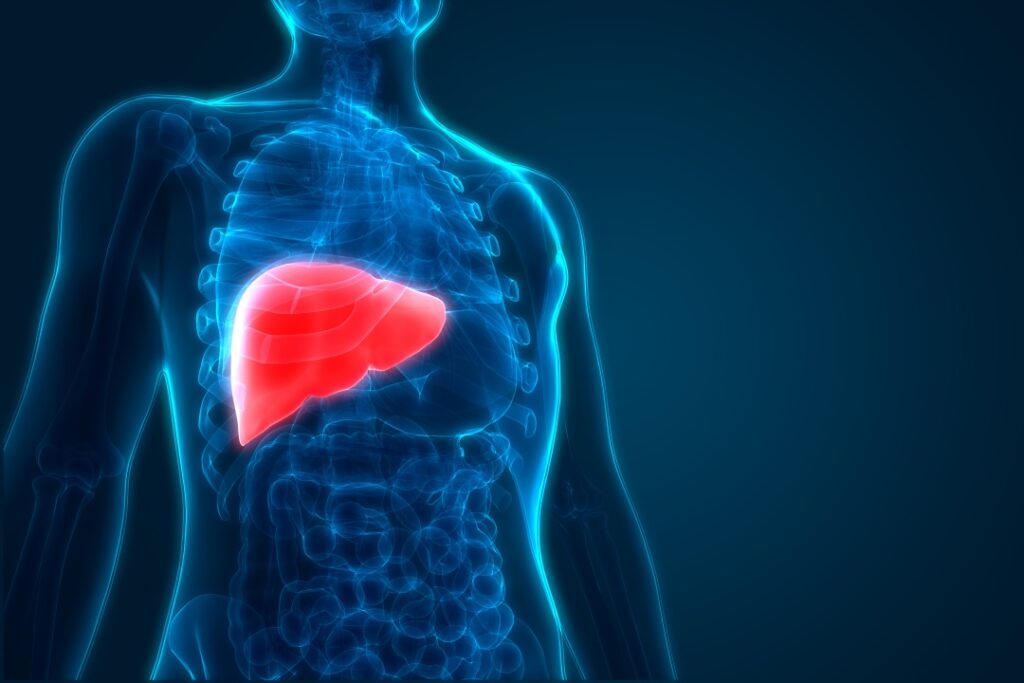What is Liver Cancer?
The liver is a complex organ known to have at least 500 different essential functions in the body. The most important functions of the liver include:
- Digesting proteins and fats
- Controlling blood clotting
- Removing toxins (the poisons that build up in the body)
- Releasing bile (this is the liquid that breaks down fats and supports digestion)
- Controlling the release of energy (in the form of glucose) into the bloodstream.
Liver cancer will disrupt these functions and can cause liver failure.
Do you need more detailed information about the Budwig Diet and Protocol? If so, download the free Budwig Guide here.
The liver can be the primary source of cancer, but it is also one of the most common sites for other cancers to spread. This spread is known as metastasis. As the liver functions as the natural detox center for the body, most of the toxic material which needs to filter out from the body and environment passes through the liver. The liver works hard and has incredible powers of healing, but is not infallible; liver cancer is the sixth most common form of cancer worldwide.
Primary liver cancer forms in the tissues of the liver, while secondary liver cancer – liver metastases or ‘Mets’ – spread to the liver from cancers in some other part of the body.
Interestingly, the chances of developing liver cancer rise sharply with age. Around 8 in every 10 cases are diagnosed in people aged 60 or older, although it can also affect younger people.
The Signs and Symptoms of Liver Cancer
Unfortunately, early-stage liver cancer does not yield many symptoms, or at times the symptoms are very similar to other medical conditions, which can initially make it difficult to diagnose. The most common symptoms include:
- Loss of appetite
- Weight loss
- Feeling full even after a small meal
- Low blood sugar
- Vomiting or nausea
- Constant pain in the upper right-hand side of the abdomen that can spread to the back or shoulder
- Swelling and bloating
- A stomach filled with gas
- Upset stomach
- Enlarged breasts in men
- Enlarged spleen or liver
- Visible veins through the skin
- Fever
- Jaundice; yellow eyes and dark urine which indicate that the liver is not functioning properly
- Itchy skin
Causes and Risk Factors for Liver Cancer
While it is not known what causes liver cancer, most cases seem to be associated with damage and scarring of the liver from a condition known as cirrhosis. Cirrhosis has several different causes; it is commonly caused by excessive alcohol consumption, from having a long-term hepatitis infection, though it may occur with no apparent reason.
Obesity and an unhealthy diet are also believed to increase the risk of liver cancer because they significantly increase the risk of non-alcoholic fatty liver disease.
Other factors that put people at risk include:
- Age – liver cancer is most common in over-55s
- Gender – more common in men than women; around two in every three cases affect men
- Smoking
- Family history
- Weight – being overweight is a risk factor
- Diabetes
- Having had gallbladder removal
Liver Cancer Five-Year Survival Rates
Liver cancer has historically had very poor survival rates – it is difficult to diagnose in early stages and so often isn’t discovered until it’s already at a severe stage. Treating late-stage liver cancer with only conventional medicine has meant that prognosis and survival rates are low. Where the cancer is localized, i.e., only present in the liver, the five-year survival rate is 28%. Where the cancer is regional – having spread to nearby organs – the survival rate is 7%. And where the cancer has spread to distant organs within the body, the five-year survival rate is only 2%.
The Budwig program has proven very helpful. Understanding that toxins are the leading cause of all cancers, the program focuses on cleansing and detoxifying the body. The liver acts as the filter of the body, and so, to begin with, we recommend a variety of potent plant-based remedies to aid the liver’s detoxification. Our natural approach enjoys so much success because while it addresses the physical disease, it also pays due respect to the effect of other aspects of a person’s life, which can be expressed through illness. The Budwig approach treats emotional trauma in the past and present, making the program truly complete.
Natural Treatments for Liver Cancer
Experts in emotional health claim that liver cancer could be related to the emotion of worrying about ‘starving to death.’ Whether that is true or not, we do know that emotional imbalance – fear, anxiety, stress, and post-traumatic feelings – impacts on physical health.
At the Budwig Center, we recognize the importance of emotional and mental health, as well as physical symptoms. Negative feelings can rob the body of vital energy to fight cancer, and we’ve found that being in a good, stable emotional state means that all of our treatments are optimized.
Just as no two people are alike, no two treatment plans are alike, and we base all our interventions on a holistic assessment of each person as a whole, individual being. As a rough guide, liver cancer treatment can include therapies like castor oil packs, pulsed magnetic frequencies, Matrix Regeneration, and whole-body hyperthermia.
The Budwig Way
The legacy of Johanna Budwig has given us the foundations for a cancer treatment center, which sees success after success because we start with the things that really matter – a healthy life for a healthy body. We don’t just treat cancer, we help our patients to be wholly well.
Check out our Remote Cancer Program, to combat the root cause of liver cancer.
